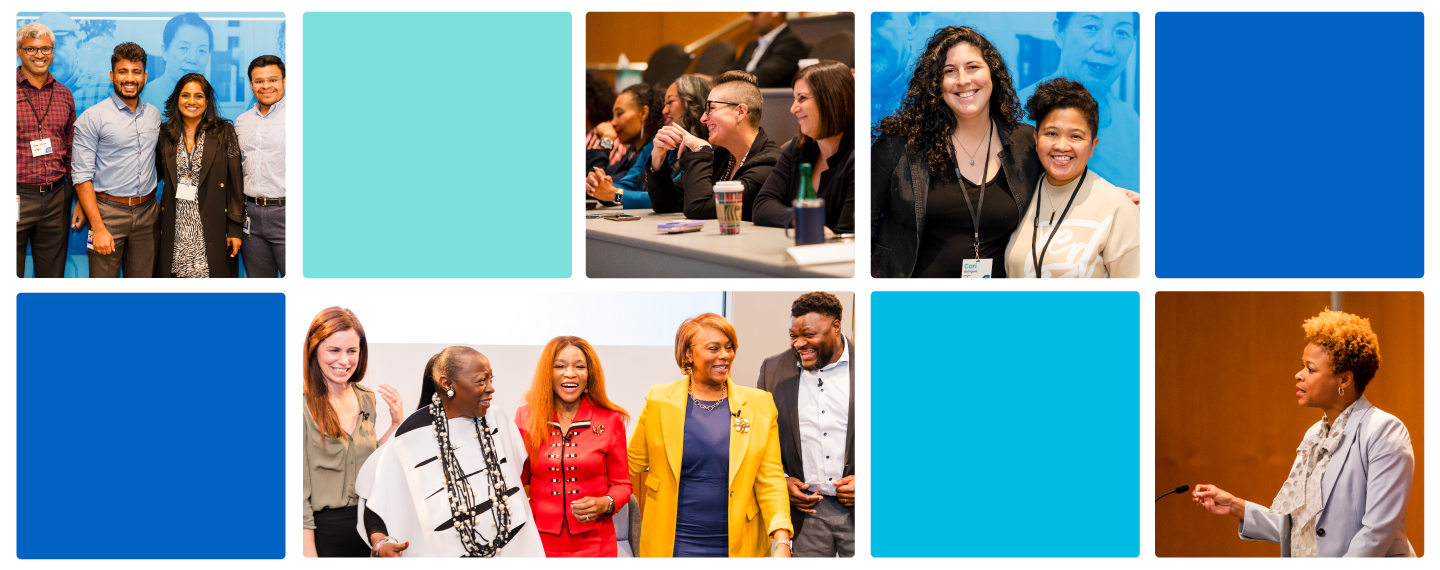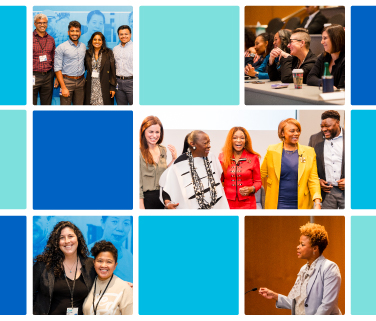This year’s Amgen Health Equity Summit marked a decade of experts coming together to share their unique perspectives and insights to develop concrete strategies for advancing health equity. The event’s 10th anniversary was marked by conversations about how past work in health equity has shaped the present, and more importantly, how it can inform the future.
While inequity crosses every corner of health, cardiovascular disease is one of the greatest global public health crises of the modern era. In the U.S. alone, someone suffers a heart attack or stroke every 40 seconds, and the impact is even greater for communities of color and women.1,2 Discussions during the event focused specifically on the pivotal importance of partnerships in addressing the multifaceted and complex challenges related to health equity in cardiovascular disease.
“’Health equity’ must be more than just words,” shared Amgen’s chief diversity officer, Tamika Jean-Baptiste. “It’s an understanding of lived experiences. It’s about listening to patients, our employees and the community so that we can better understand and embrace the problems while working toward equitable solutions. Together we can drive meaningful change and advance health equity.”
Two related strategies emerged as recurring themes in the day’s discussion: improving access to clinical trials for members of all communities, and empowering individuals and communities to implement their own solutions for cardiovascular disease prevention, screenings and care locally.
Clinical trials need to reflect society so that everyone has the chance to benefit from new treatments
“People of color are affected disproportionately by chronic health conditions such as cardiovascular disease, diabetes and obesity, but at the same time, they are vastly under-represented in clinical research,” said Amgen CEO Bob Bradway. This matters because characteristics like race and ethnicity, age, sex and environmental conditions, such as low socioeconomic status, can influence how an individual responds to treatment.3
The Amgen Representation in ClInical ReSEarch program (RISE) focuses on improving diversity in Amgen clinical trials. Amgen’s RISE team works to ensure new medicines are evaluated in participants who reflect the makeup of the populations affected by the diseases they are designed to treat.
Amgen is also collaborating with the Association of Black Cardiologists and Morehouse School of Medicine on the African American Heart Study. The study aims to enroll 5,000 African Americans to understand the prevalence of elevated lipoprotein (a) levels in African Americans and its association with heart disease. Lp(a) is a particularly sticky type of LDL (the “bad” cholesterol) that increases the risk of blood clots and blockages that can lead to heart attacks and strokes.4,5
Dr. Elizabeth Ofili with Morehouse School of Medicine, global principal investigator of the study, says that contrary to what some believe, Black communities want to participate in clinical research. “They want to have an opportunity to know how this affects themselves and members of their family. Absolutely they do.” To encourage participation in trials Dr. Ofili counsels talking to potential enrollees with “humility, a lot of empathy and a goal of understanding where they’re coming from.”
Innovative solutions require empowerment of affected communities
Amgen’s first ever health equity challenge awarded donations to five community-based, non-profit organizations in Florida to implement year-long cardiovascular disease health equity solutions in their local Black communities.
Jen Cheek from Urban Health Partnerships in Miami discussed how the organization connects with the local community to make a difference in heart health. “Our work is always resident focused. We help develop systems that allow community voices to rise to the surface, to help them build the neighborhood that is going to allow them to make healthy choices in their everyday lives.”
Carla Davis from Hope Clinic in Pensacola likewise says they are responsive to the needs of their community, while also creating opportunities for people to access essential services. “We have various community events where we provide cholesterol and blood pressure checks. We have individuals who don’t know their numbers, so we do the screenings and provide them.”
A consistent theme across both programs is recognition that community engagement must be methodical and intentional. Building sustainable solutions is about much more than just providing services. When the community feels a part of the solution, individuals are more likely to take an active role in improving their own health and encouraging their peers to do the same.
Harnessing the collective wisdom is the key to sustainable solutions
In her opening remarks, Jean-Baptiste laid out a vision for health equity where there is a just opportunity for all people to be as healthy as possible, and she remarked that 10 years of sustainable work in health equity among the partners at the Summit has brought us closer to that reality.
In closing the meeting, moderator and health equity expert Sheila Thorne came full circle about what it will take to achieve this vision. “We need ongoing innovation, persistence, commitment, and sustainability. All of us have to be a part of this conversation because in our collective wisdom, we can solve the problem.”
Watch a video recording of the Health Equity Summit below.
- Centers for Disease Control and Prevention. Heart Disease Facts. Accessed November 9, 2023. Stroke Facts. Accessed November 9, 2023.
- Mehta LS, Velarde GP, Lewey J, et al. Cardiovascular disease risk factors in women: The impact of race and ethnicity. Circulation. 2023;147:1471-1487.
- National Institute on Minority Health and Health Disparities. Diversity and Inclusion in Clinical Trials. Accessed November 2, 2023.
- Centers for Disease Control and Prevention. Lipoprotein (a). Accessed May 4, 2023.
- MedlinePlus. Lipoprotein (a) Blood Test. Accessed May 4, 2023.





